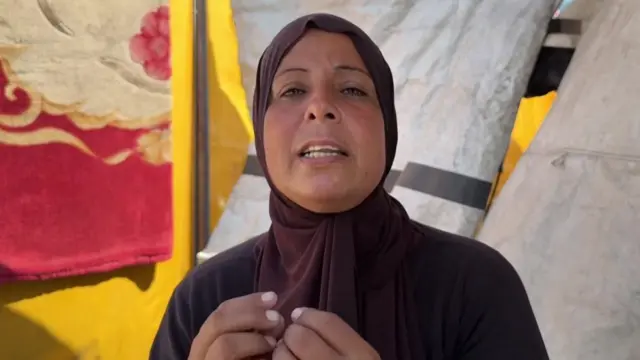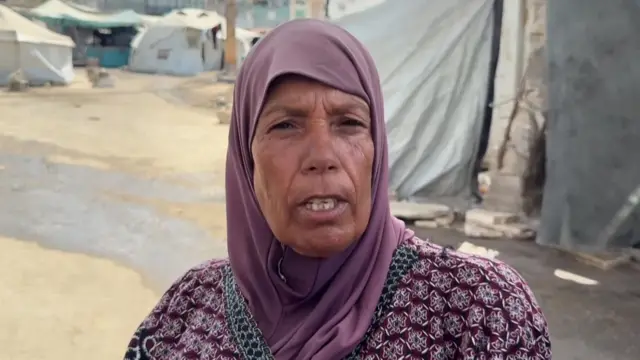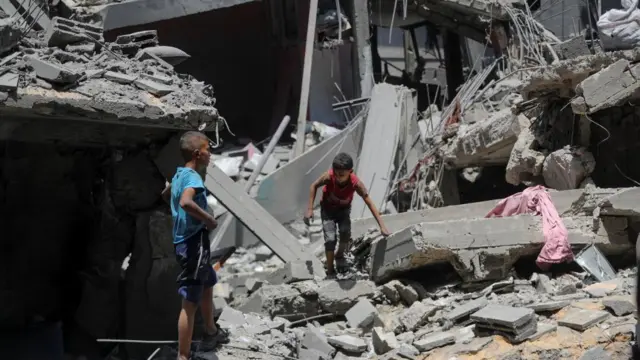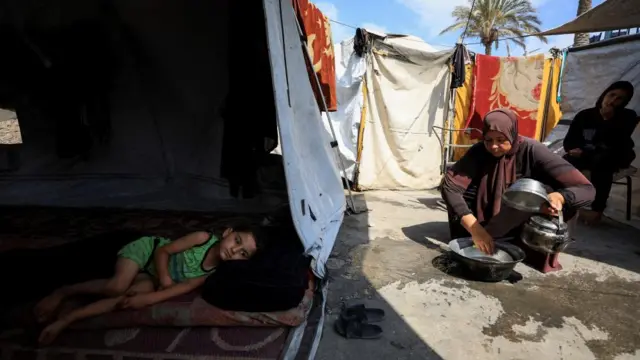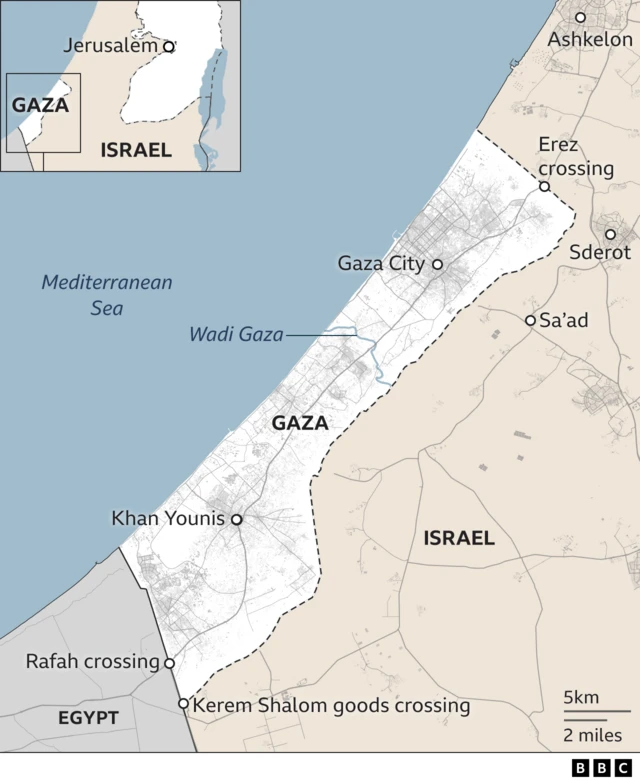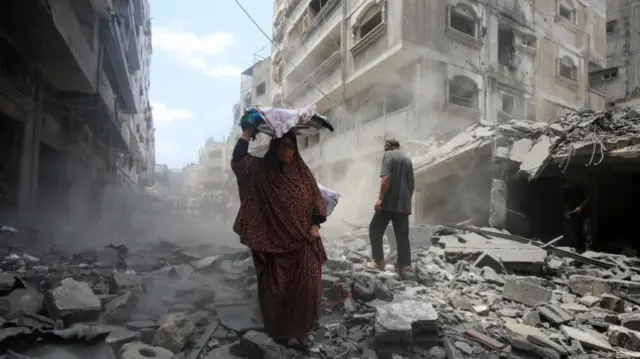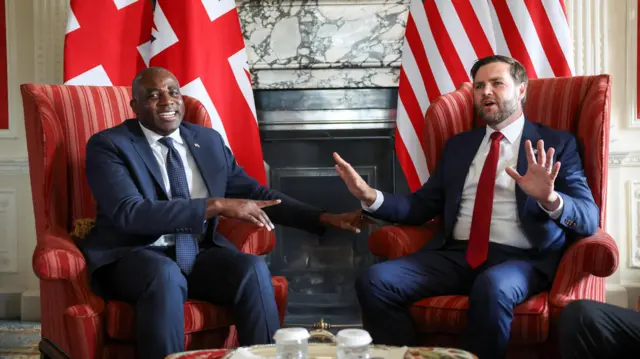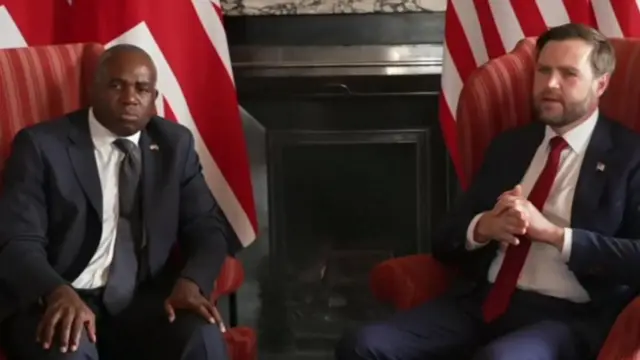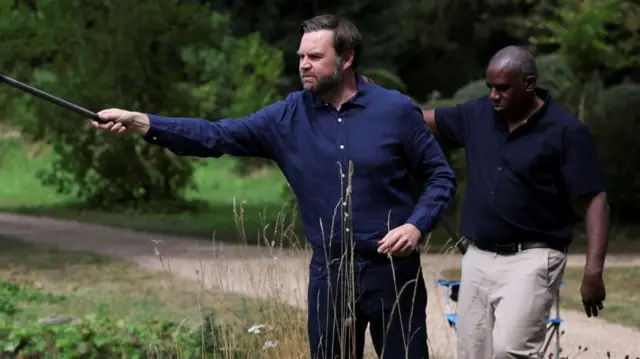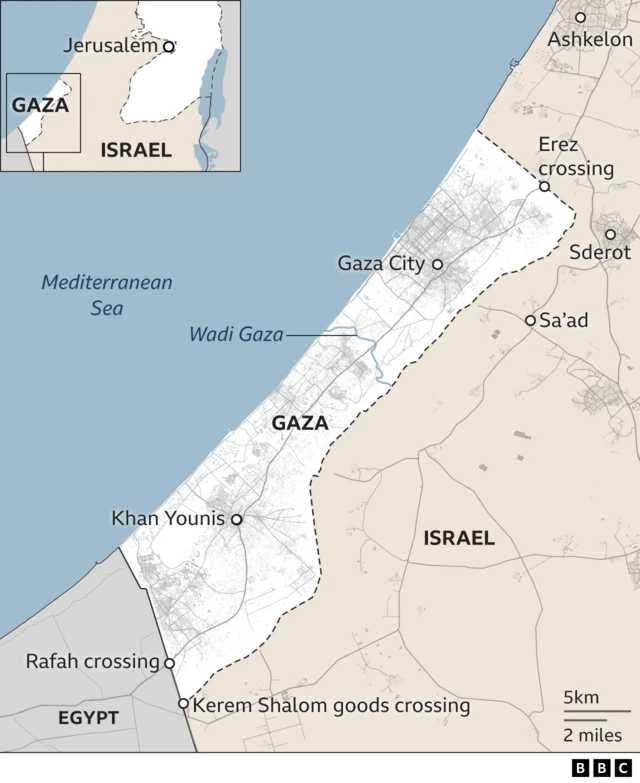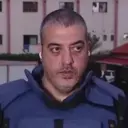'Hamas should hand over hostages,' says Gazanpublished at 16:30 BST 8 August
As we've been reporting, Israel doesn't allow international journalists into Gaza to report freely.
The BBC works with journalists inside the territory, who can interview Gazans and share what's happening.
Um Saadi tells us she's been evacuated 15 times since the start of the war.
Asked if she'll evacuate again after Israel's plan to take over Gaza City, she says she's not sure yet.
"We might evacuate or stay here, or wait to see what they plan to do with us," she says.
Saadi says Hamas needs to hand over the hostages, so that Israel "won't invade us".
"Give them the hostages and spare us," she says.

Asked if she has children, Saadi says they ask her for food and drinks but she "cannot provide for them".
Frustrated, she says: "Hamas provides for itself, they eat and drink, while we cannot provide food or drinks."
Saadi also says she's sick and can't find medicines in the territory.
"Until when will we keep living in these conditions? We have been struggling for two years."
